The adventurous British violin virtuoso talks with US correspondent Thomas May about why he couldn’t resist adding his stamp to one of classical music’s most beloved icons
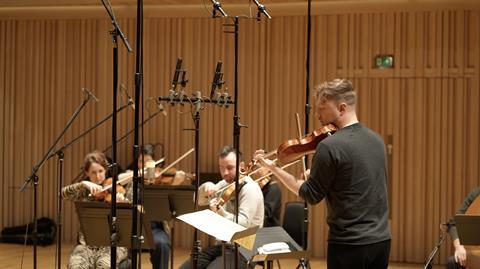
Discover more Featured Stories like this in The Strad Playing Hub
The Four Seasons hardly lacks for representation on disc or in the concert hall. But Daniel Pioro will make you reconsider your assumptions about Vivaldi’s beloved concertos. To celebrate the release of his extraordinary new recording with Manchester Camerata, the virtuoso violinist will join the ensemble to perform the cycle on Saturday 18 January at King’s Place in London, UK; the first concert in the series Platoon Presents at Kings Place.
‘I think music that is as remarkable as Vivaldi’s concertos deserves to be played by people who aren’t only focused on the idea of having a conventional classical career,’ says Pioro. ‘It should be performed by people who are interested in sound, in noise, in risk-taking.’
Better known for his adventurous advocacy of contemporary composers and his experiments with novel concert formats, Pioro views his decision to take on The Four Seasons as in keeping with his desire to inspire a love of classical music in younger generations. ‘Increasingly as I get older, I think about what made me fall in love with these pieces and feel a duty to engage with them.’
Reminded of other ‘great picture-painting pieces of music’ like Prokofiev’s Peter and the Wolf, Pioro, who was born in London in 1986, wanted to include a fresh approach to the poems (usually attributed to Vivaldi himself) that were published with the first edition 300 years ago, one for each concerto/season.
He opted not for a mere translation but a ‘reframing’ by the English writer Michael Morpurgo, who is most widely known for such children’s books as War Horse. Morpurgo’s readings of his new poems are interspersed with the concertos on the new recording. For the concert at Kings Place on 18 January, actor and broadcaster Stephen Fry will recite the poems. Also on the programme is American composer Caroline Shaw’s Grammy Award-winning The Evergreen.
Pioro, now based in Edinburgh, spoke with The Strad about why he has been ‘forever obsesssed’ with Vivaldi’s perennially popular concertos and the perspective he brings to them.
Why did you decide to ask Sir Michael Morpurgo to write new poetry to be narrated as part of your interpretation?
Daniel Pioro: I met Michael almost 20 years ago, when I was a student at the Royal Academy of Music. I used to think of him as my honorary Grandad – such a compassionate and gentle man, but with such clarity of purpose and ideas. So coming to him was the most exquisitely logical decision I could have made.
All the magic that Vivaldi wrote is of course already in the score. But I saw what Michael does – to ‘Morpurgify’ Vivaldi’s words for each concerto – as a way to give permission for young people, who maybe don’t have classical music in their world, to feel like these words are being told to them specifically, and to dream and tell stories and enjoy it. He manages to take the poems away from Italy so that they aren’t specific to Italian sensibilities or the Italy of centuries ago. We’re talking about a storyteller who introduces you to something for the first time.
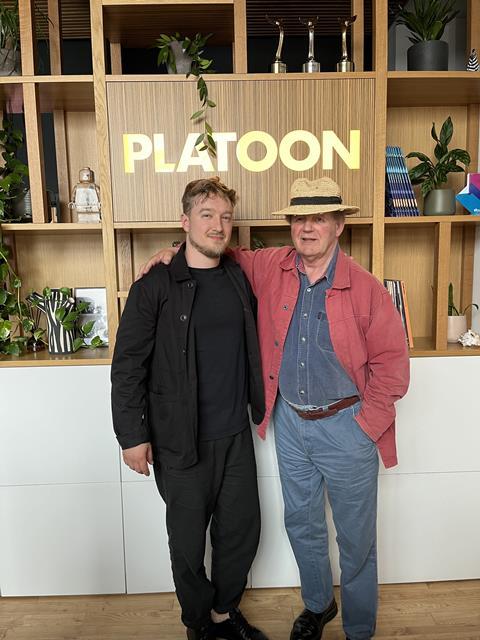
How did your artistic partnership with Manchester Camerata shape your approach?
Daniel Pioro: I have never worked with people who are so open to creating a shared thing. I can be quite merciless in the way I work, because for me the violin is so precious. ‘Classical music’ is the most extraordinary thing – but only when treated with total focus, commitment and respect. This recording wouldn’t have happened if I had not been able to find the right people.
The way Manchester Camerata adapts and listens is exactly what I required. I provoke and show and then we all introduce new ideas to each other all the time. One example of how they were willing to go along is the role I insisted we give harpsichordist David Gordon, whom I invited to join us, because of course the Camerata doesn’t have a harpsichord player. I wouldn’t have done the recording without him.
What was especially important about David Gordon’s role?
Daniel Pioro: I hear so much in this piece. The solo violin is actually the least interesting, I think. It’s not just me plus the string group – they are an extension of me, my echo, so that in some ways we are one entity; I just fill in some lines that they don’t play. The harpsichord is not just a continuo part that adds some embellishment but has to be my equal partner, to meet me totally. I didn’t want a harpsichordist who would just fill in some harmonies. I wanted someone who would want to make this piece utterly their own. David Gordon is one of these people.
What are some ways in which you ‘provoked’ or prompted your colleagues to adopt your unique perspective on these works?
Daniel Pioro: I would tell them the whole story of how I hear each movement. The third movement of ‘Spring’ for example, very clearly has some sort of horn or pipe, like a bagpipe drone. But it depends on how much you want to really engage with what Vivaldi has written. So at various points we split the violins into sections where some play what is ltterally written, while the others hold the note. They also flick their fourth fingers to mimic the sound that the bagpipe makes on note changes. For me, it’s this mad, paganistic, almost Rite of Spring-like caper from beginning to end.
The second movement of ‘Autumn’ is maybe the most extreme example of these provocations. It’s the dream of the drunk after the harvest party. Vivaldi has made that explicit in the poem, and he’s written it into the music. But I think we have a duty not only to play this thing that he’s written but to make clear what is being illustrated.
My brief to the orchestra and to David on harpsichord was to imagine this as an opioid dream and what it would be like to really be travelling in their heads to other places they have never seen before and will never see again on waking. It’s a very slow movement anyway, but we indulged in its slowness and in the fragility of the bowing. I encouraged them not to always necessarily change notes at the same time, so that there’s this slightly murky overlap. Because of the harpsichord improvisation, we did four different takes that sound nothing alike.
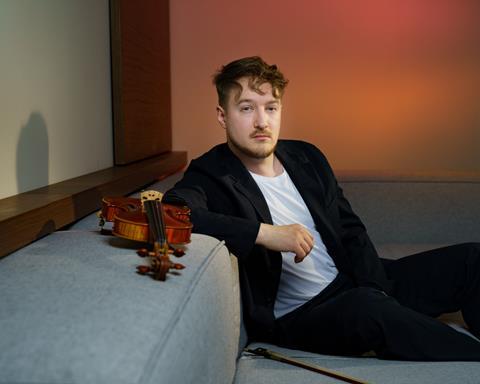
You’ve said that The Four Seasons has been a cornerstone work for you since your early days. Did this project alter your understanding of what Vivaldi has achieved?
Daniel Pioro: To be honest, ‘Autumn’ always used to bore me. I love the actual season, but I used to find the music lacking in some quality. When performing it, I used to find it very hard to engage with. Now I think I know the reason: it’s the most human and deals with harvest, with excess at a party, with a hunt. Everything else in the cycle has some kind of bigger, cosmic element: birth in ‘Spring’, heat and the way nature affects us and breaks things in ‘Summer’, and death and the end of things in ‘Winter’. And we know that rebirth comes after. But through the process of making this recording, I’ve ended up loving ‘Autumn’ wildly. But I had to give myself permission to dream about how to hear it, as I have described.
What has been especially fulfilling for you about this project?
Daniel Pioro: You’d think we’d have mined the whole thing by now. But my problem with recordings of this piece is that I think they are often like a photograph of a photograph. There is a profound temptation to play these pieces ‘normally’, to play them beautifully and not think about these other things, because Vivaldi is so pleasing and wrote such pleasurable music. But, historically, we tend to slightly mock the pleasureable and to think if something is really at the highest level, it’s got to cause us pain.
My vision in recording this piece was that we’re going to do what Vivaldi was screaming for. So any ‘idiosyncrasies’ I describe – and there are some things we’ve done that I haven’t heard in other recordings – I think Vivaldi is actually asking for. You can’t talk about nature and write a piece about the living, breathing world and not include every single aspect of humanity. This is a testament to Vivaldi’s brilliance.
Daniel Pioro and Manchester Camerata’s album Vivaldi: The Four Seasons, is released on Platoon on 17 January 2025.
Read: ‘Give them something to listen to’ - Daniel Pioro: Blink if you dare
Read: Daniel Pioro on his Götting 1709 ‘Viotti’ Stradivari copy
Read: You’ve got to do the work: The Miró Quartet marks its 30th-anniversary season
Discover more Featured Stories like this in The Strad Playing Hub.
The number one source for playing and teaching books, guides, CDs, calendars and back issues of the magazine.
In The Best of Technique you’ll discover the top playing tips of the world’s leading string players and teachers. It’s packed full of exercises for students, plus examples from the standard repertoire to show you how to integrate the technique into your playing.
The Strad’s Masterclass series brings together the finest string players with some of the greatest string works ever written. Always one of our most popular sections, Masterclass has been an invaluable aid to aspiring soloists, chamber musicians and string teachers since the 1990s.
The Canada Council of the Arts’ Musical Instrument Bank is 40 years old in 2025. This year’s calendar celebrates some its treasures, including four instruments by Antonio Stradivari and priceless works by Montagnana, Gagliano, Pressenda and David Tecchler.



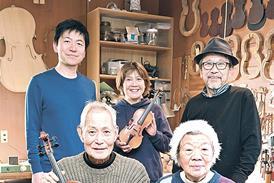
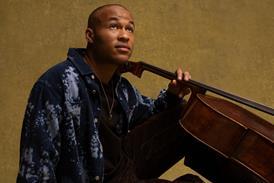




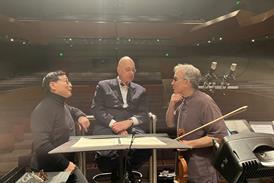


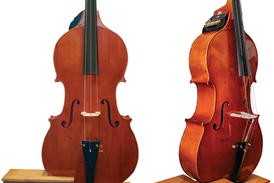






























No comments yet